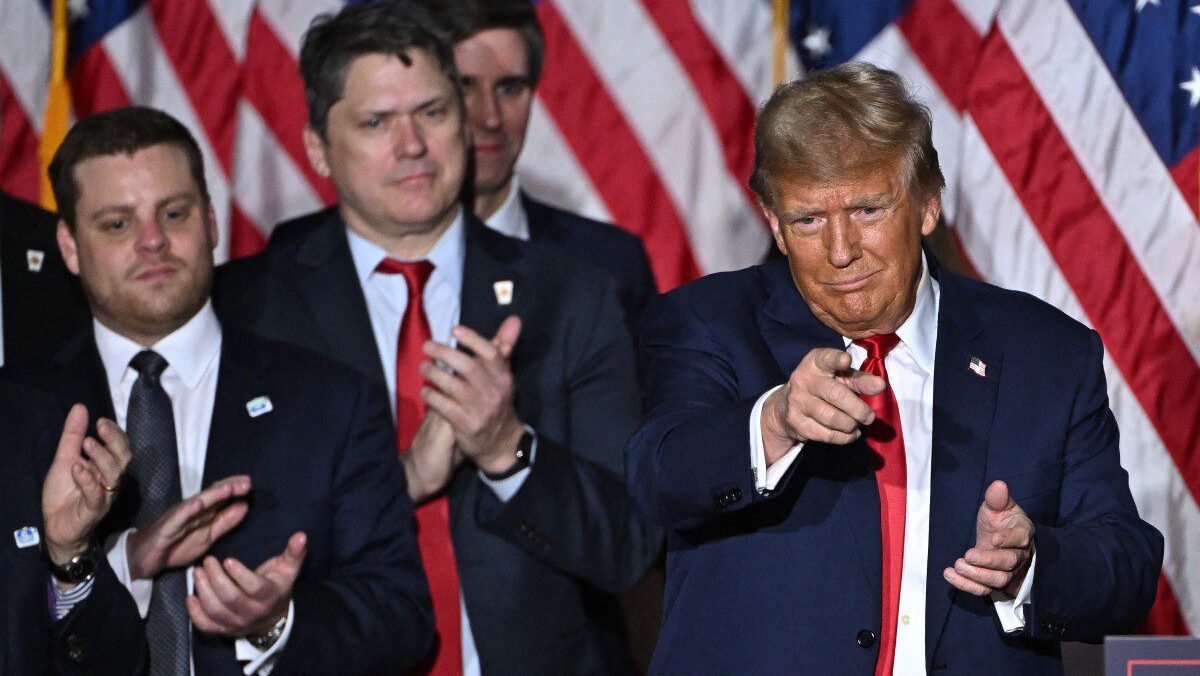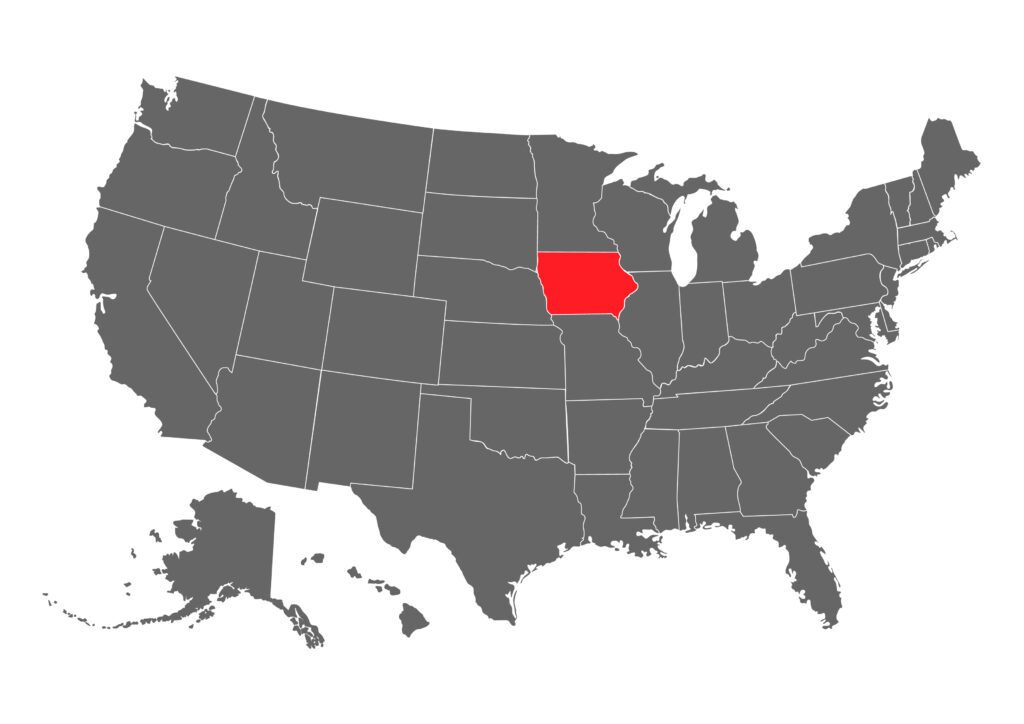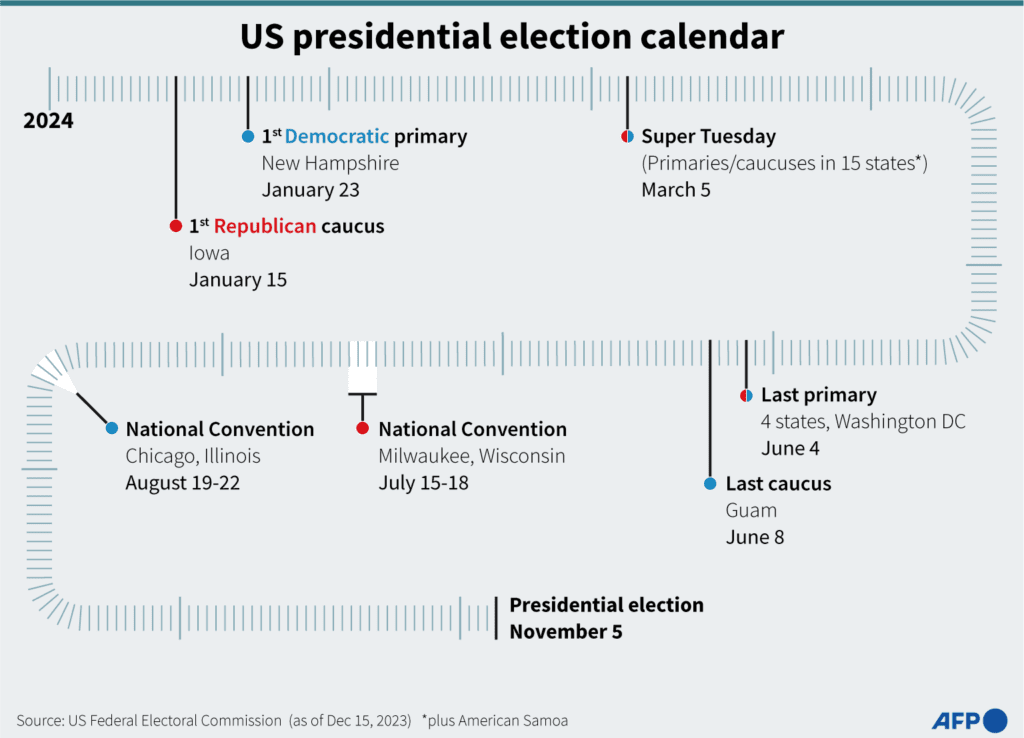
Photo: Jim WATSON / AFP
Former U.S. President Donald Trump has secured a resounding victory in Iowa, the first of many Republican contests that will determine who will be the party’s nominee in November’s presidential election.
Trump took 51% of the votes, Florida Governor Ron DeSantis was a distant second with 21%, Former U.N. Ambassador Nikki Haley received 19% of the votes, and entrepreneur Vivek Ramaswamy got 8%. The latter announced he is dropping out of the primaries, and is endorsing Trump because “there needs to be an America First candidate in this race.”
The Iowa caucuses are the first major event in the U.S. presidential primary season. They are in-person meetings where voters gather to select candidates for their registered political parties, as opposed to a primary, where voters go directly to the ballot box.
Donald Trump cruises to victory in the Iowa Republican presidential caucuses, with Ron DeSantis finishing a distant second in a contest that established the former president as the party’s clear frontrunner.
— Bloomberg Politics (@bpolitics) January 16, 2024
The result moves Trump a step closer in his 2024 White House comeback… pic.twitter.com/5EWYGogKm4
This was the biggest margin of victory in the history of Iowa’s Republican presidential caucuses, easily surpassing Bob Dole’s 12.8 percentage point winning margin in 1988.
Trump “won across all demographics,” winning big in suburban areas and rural counties, according to Republican strategist Jimmy Centers who spoke to Fox News. According to an Edison poll, the former president won a majority among men and women, and among those who consider themselves very conservative, somewhat conservative and independent. A majority of those who put immigration or the economy as their top concern also voted for him.
CNN called Trump’s victory “one of the most astonishing comebacks in American political history,” adding that “losing one-term presidents almost never mount subsequent successful primary campaigns, much less pull off landslides that demonstrate utter dominance of their party.”

Donald Trump has not only won easily in Iowa, but opinion polls suggest he could beat his Republican rivals by similar margins in other states. He also appears well-placed to beat Democratic President Joe Biden by a thin margin in a probable re-run of the 2020 election.
The many criminal charges brought against Trump by Democratic prosecutors and the Department of Justice in a bid to try and stop him from retaking the White House have seemingly only fueled his support among Republican voters.
“Despite every lawsuit, despite every effort to destroy Trump, the people of Iowa have stood up and said, ‘No, he is our candidate’,” Former House Speaker Newt Gingrich told Fox News. Former George W. Bush press secretary Ari Fleischer explained that “many people cheering for the defeat of Donald Trump are out of touch with a huge swath of this country”, but Trump “is intuitively in touch with them. And you’re seeing that tonight on the ground in Iowa.”
After his victory, Donald Trump declared it is time for America, for everybody to come together, whether a person is “a Republican or a Democrat or liberal or conservative.”
“It would be so nice if we could come together and straighten out the world and straighten out the problems and straighten out all of the death and destruction that we’re witnessing, that’s practically never been like this,” he said.
TRUMP: “I really think this is time now for our country to come together.” pic.twitter.com/981Z7vQB09
— Benny Johnson (@bennyjohnson) January 16, 2024
The next Republican battle will be in New Hampshire on January 23rd, where Trump has a less resounding lead in opinion polls, a 12-13% margin over Nikki Haley. The primaries and caucuses in all other states will continue in the following months, until June, but Trump’s rivals may step back from the race much earlier than that.

Even Joe Biden acknowledged that Trump is “the clear front runner on the other side at this point.” In a tweet, clearly insulting Republican voters, he added: “But here’s the thing: this election was always going to be you and me vs. extreme MAGA Republicans. It was true yesterday and it’ll be true tomorrow.”
Looks like Donald Trump just won Iowa. He’s the clear front runner on the other side at this point.
— Joe Biden (@JoeBiden) January 16, 2024
But here’s the thing: this election was always going to be you and me vs. extreme MAGA Republicans. It was true yesterday and it’ll be true tomorrow.
So if you’re with us, chip…
Biden also has his own electoral battles to contend with, but the president is expected to secure the Democratic Party nomination easily, as he currently holds a commanding 60% margin lead over his two rivals, author Marianne Williamson and Congressman Dean Phillips.
